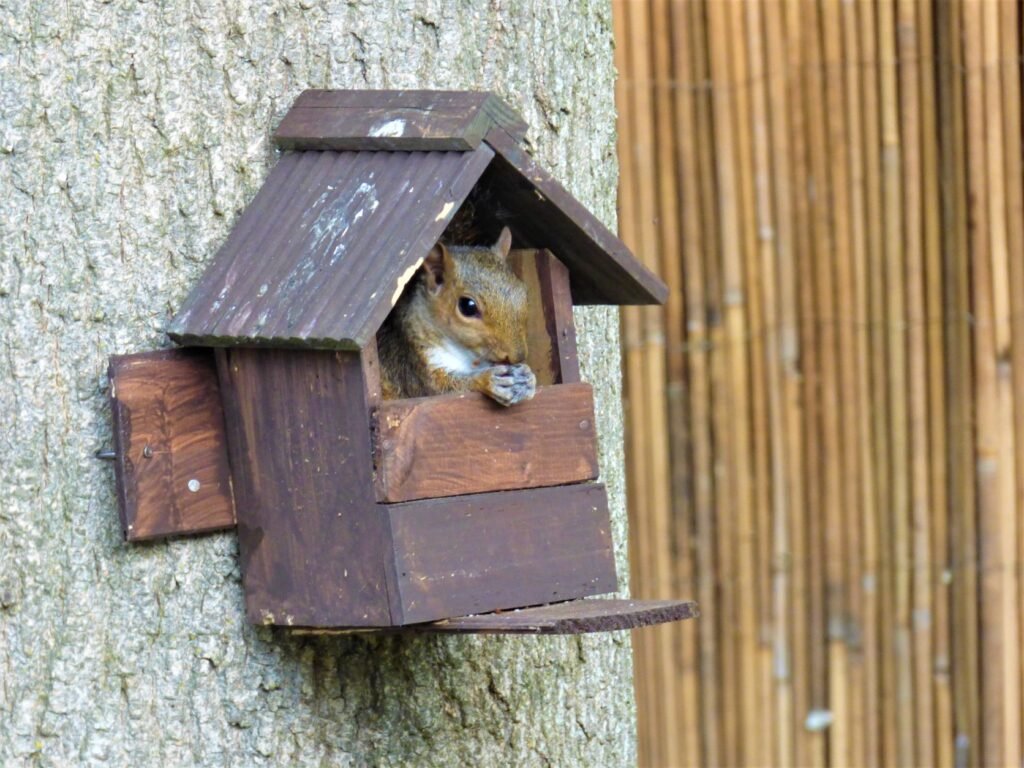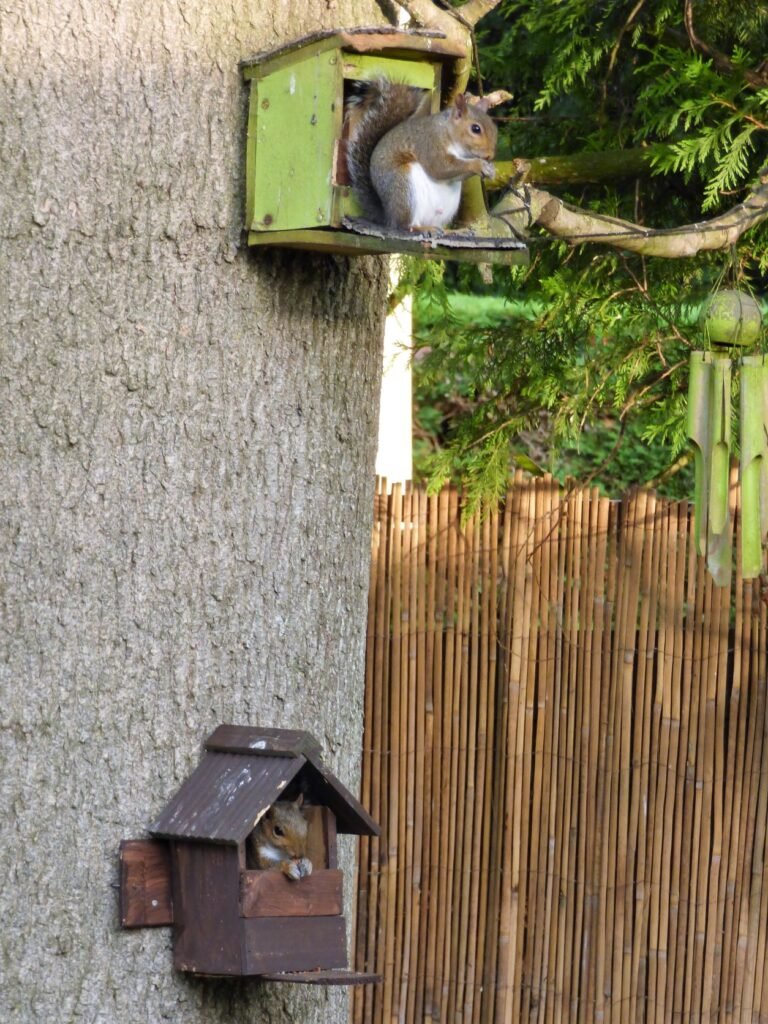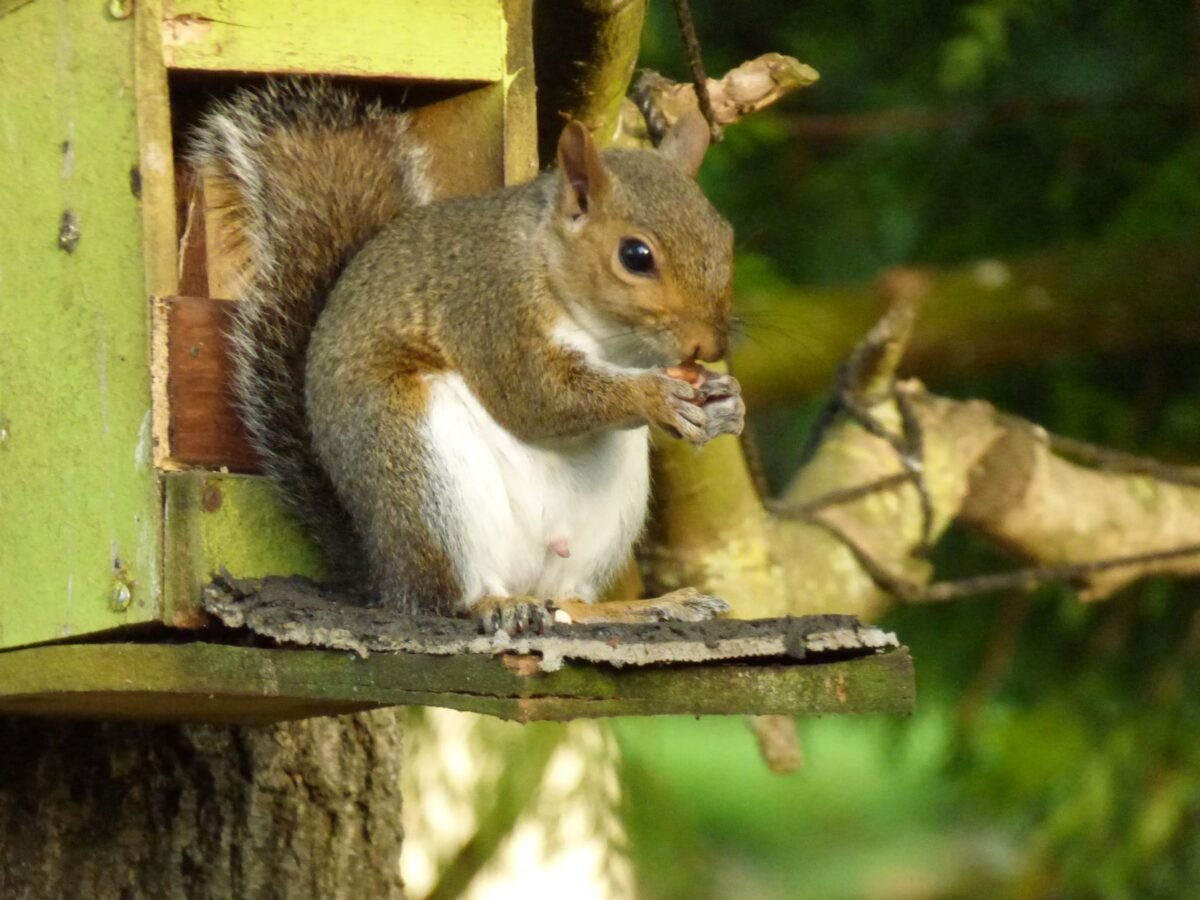Sterilising grey squirrels seems extreme.
The plan of sterilising most or all grey squirrels in the U.K. to save the red squirrel from extinction seems extreme and unworkable. But it has recently been greeted with glee by conservationists, foresters, the news media and especially by everybody who thinks they are just rats with bushy tails. Many are wishing for total eradication, but can we be realistic for a moment.
Sadly, there are estimates of only 150,000 red squirrels surviving in the U.K. mainly in Scotland compared with 2.7 million greys marauding as aliens across the rest of the country destroying our forests, causing climate change, attacking and passing on disease to the reds and a whole list of other indiscretions. Meanwhile the angelic reds can do no wrong.

Surely a squirrel is a squirrel is a squirrel.
But surely a squirrel is a squirrel is a squirrel the world over and all species have similar eating and behavioural habits. The reason reds do such little damage in the UK is that they are only 150,000 of them, so what if we tilt the balance the other way and have 2.7 million reds. What happens then? I suspect we would soon target them as the number one villain and cull them. Red squirrels are known to strip bark, destroy trees, etc, etc. and in large numbers will be just as destructive at debarking trees, invading your loft space, eating birds eggs and all the other complaints we have against greys.
The logistics seem overwhelming
Meanwhile the researchers and scientists who have come up with this squirrel contraceptive idea have spent over 4 years of a 5 year research project developing this and hope to put a plan in place by 2024. It is described as an innovative idea which will provide an effective, less labour intensive method for managing or eradicating greys.
Sounds wonderful, but seriously, is it less labour intensive. How much money and manpower will it take to replenish and check these feeders and what about the costs of manufacturing them, supplying, servicing and positioning them. Probably more than the cost of the damage they allegedly cause.
If those involved seriously think they will be able to make inroads into the number of greys, which they admit are prolific breeders, it will entail an astronomical amount of feeders. The logistics would appear to be impossible.

Still welfare issues
Yes, its better than shooting, trapping and poisoning them but the use of sterilising could involve mental and physiological suffering by them not being able to nuture young. There are other alternatives already in use to curb wildlife. Is it time to just let nature takes its course or allow some disorder in nature and in this case spend the money on establishing more breeding and release programmes.
I personally feel it would be money better spent sterilising urban rats considering the health and hygiene risks they pose. Anyone out there researching that?

